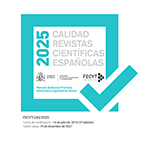Interface between Cognitive Load Theory and L2 reading comprehension skills: A mixed designed experiment
Abstract
The purpose of this research is to explore the extent to which the Redundancy Effect (RE) affects the L2 reading comprehension skills of a group of 24 young learners –whose L1 is Spanish- taking a low-intermediate course in English at a private school in Mar del Plata, Argentina. This group was divided into two sub-groups: A & B. Sub-group A was exposed to a single mode of instruction (reading alone). Sub-group B was exposed to a multiple presentation mode (reading + listening). Data were gathered using a text that was carefully chosen to meet the students’ age and English language proficiency level. After completing the reading task, both sub-groups filled out a questionnaire, and five students from each group were interviewed. Using a mixed research design, qualitative and quantitative information, coming from different instruments of data collection was cross-checked. Data triangulation was used to strengthen final results. Findings showed that sub-group A (reading alone) outperformed the other sub-group (reading + listening). Based on these results, some suggestions for the development of L2 reading comprehension skills were made, and some pedagogical implications were addressed.Downloads
Article download
License
In order to support the global exchange of knowledge, the journal Didáctica. Lengua y Literatura is allowing unrestricted access to its content as from its publication in this electronic edition, and as such it is an open-access journal. The originals published in this journal are the property of the Complutense University of Madrid and any reproduction thereof in full or in part must cite the source. All content is distributed under a Creative Commons Attribution 4.0 use and distribution licence (CC BY 4.0). This circumstance must be expressly stated in these terms where necessary. You can view the summary and the complete legal text of the licence.










